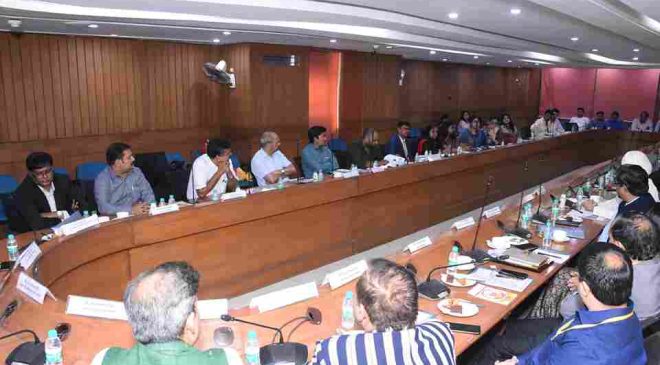
Explained: What the SC said and how is Talaq-e-Hasan different from triple talaq
[ad_1]
India
oi-Vicky Nanjappa


New
Delhi,
Aug
17:
The
Supreme
Court
on
Tuesday
said
that
the
practice
of
divorce
in
Muslims
through
the
‘Talaq-e-Hasan’ pronounced
once
a
month
over
a
period
of
three
months
is
not
similar
to
‘triple
talaq.’
The
women
also
have
an
option
of
‘khula’
the
court
said.
While
a
Muslim
man
can
take
‘talaq’ a
woman
can
separate
from
her
husband
through
‘khula.’
The
observations
were
made
by
the
court
while
hearing
a
petition
seeking
to
declare
‘Talaq-e-Hasan’
and
all
other
forms
of
unilateral
extra
judicial
‘talaq’
as
void
and
unconstitutional.

The
petitioner
claimed
that
they
were
arbitrary,
irrational
and
violated
fundamental
rights.
Let
us
take
a
look
at
how
this
is
different
from
the
now
illegal
‘triple
talaq.’
 Man
Man
booked
for
giving
wife
triple
talaq
over
phone
from
Saudi
Arabia
Talaq-e-Hasan:
Talaq-e-Hasan
is
pronounced
once
a
month
over
a
period
of
three
months.
If
the
cohabitation
does
not
resume
during
this
period
the
divorce
is
formalised
after
the
third
utterance
in
the
third
month.
If
the
cohabitation
resumed
after
the
first
or
second
utterance
of
‘talaq’
the
parties
are
assumed
to
have
reconciled.
The
first
and
second
utterances
of
‘talaq’
are
then
deemed
invalid.
Difference
between
Talaq-e-Hasan
and
Triple
Talaq:
In
Islam
there
are
three
types
of
divorce-
Talaq-e-Ahsan,
Talaq-e-Hasan
and
Talaq-e-biddat.
‘Ahsan’ means
best
of
most
proper.
Under
Talaq-e-Ahsan
the
husband
must
pronounce
divorce
in
a
single
sentence
when
the
wife
is
not
menstruating.
The
divorce
is
followed
by
a
period
of
abstinence
known
as
‘iddat.’
The
duration
is
ninety
days
or
three
menstrual
cycles
or
three
lunar
months.
Talaq-e-biddat
is
the
most
controversial
form
of
divorce
and
was
banned
in
2019
by
the
government.
This
can
take
the
form
of
triple
talaq
or
instant
divorce
when
the
husband
can
pronounce
‘talaq’
thrice
one
sitting
to
divorce
his
wife.
There
is
no
observation
of
a
waiting
period
in
this
form
of
talaq.
 One
One
year
on,
BJP
has
big
plans
for
triple
talaq
anniversary
What
the
petitioner
said:
The
petitioner
said
that
her
husband
had
sent
her
a
Talaq-e-Hasan
notice
through
his
lawyer
on
April
19
after
her
family
refused
to
pay
dowry.
She
also
sought
a
direction
to
the
Centre
to
frame
guidelines
for
neutral
and
uniform
grounds
of
divorce
and
procedure
for
all
citizens.
What
the
Supreme
Court
said:
The
Supreme
Court
said
that
Talaq-e-Hasan
form
of
divorce
is
not
so
improper
as
the
women
have
the
option
of
khula.
Triple
talaq
on
the
other
hand
is
instant,
the
Bench
said.
“This
is
not
triple
talaq.
You
(women)
also
have
option
of
Khula.
If
two
people
cannot
live
together,
we
are
also
granting
divorce
by
irretrievable
breakdown
of
marriage.
Are
you
open
to
divorce
by
mutual
consent
if
mehar
(gift
given
in
cash
or
kind
by
groom
to
bride)
is
taken
care
of,”
the
bench
asked
the
petitioner.
“Prima
facie
I
don’t
agree
with
petitioners.
Let
us
see.
I
don’t
want
this
to
become
an
agenda
for
any
other
reason,”
the
Bench
said.
The
court
told
the
petitioner
that
dissolution
of
marriage
is
also
possible
without
the
intervention
of
this
court
through
‘mubarat.’ The
next
date
of
hearing
has
been
fixed
for
August
29.
Story first published: Wednesday, August 17, 2022, 10:46 [IST]
[ad_2]
Source link


